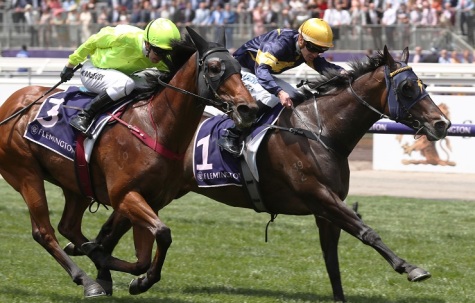New gambling taglines will be rolled out from March, with the “gamble responsibly” warning replaced with stricter ones including “Chances are you’re about to lose”, “Think. Is this a bet you really want to place?” and “What’s gambling really costing you?”
Experts say they rightly place a greater emphasis on the perils of gambling rather than the responsibility of the user.
There are some stark similarities between the focus on the gambling industry — which is mired in controversy after inquiries — and what happened to big tobacco at the turn of the century. Both faced intense scrutiny particularly when it comes to addiction. Both fought back with powerful lobbying. But the question remains: how far will restrictions on gambling advertising go — and will they reduce harm?
Phase one: honest, upfront warnings
The first step in reducing the popularity and availability of cigarettes in Australia was to put honest, upfront warnings on packages after emerging research on the dangers of tobacco. These started with a simple health hazard warning in the ’70s, before being upgraded in the ’80s to take up 20% of the pack warning that “Smoking kills”, “Smoking is addictive”, and “Smoking causes lung cancer and heart disease” (though after lobbying, these warnings were downgraded to remove references to addiction and death).
Sign up for a FREE 21-day trial and get Crikey straight to your inbox
Warnings slowly grew in size and detail across the ’90s and 2000s before the plain packaging laws were implemented in 2011.
Just as papers on the dangers of smoking grew in prevalence across the ’60s, ’70s and ’80s, information on the impact of gambling has been growing. There have been damning inquiries into Crown Casino and Star Entertainment, papers exploring how exposure positively shapes children’s gambling attitudes, a NSW inquiry into how pokies are used to launder cash, and now the federal government has launched an inquiry into online gambling and its impacts on those experiencing gambling harm.
The new taglines have been designed to reflect the updated information, Deakin University gambling researcher Associate Professor Samantha Thomas told Crikey, based on behavioural research that found the “gambling responsibly” tagline was ineffective.
“The negative impact of the gamble responsibly tag is that it puts all of the emphasis on the individual for being responsible with the product, and takes all of the emphasis off the government for enacting good policies to prevent harm, and the industry itself,” she said.
This can contribute to shame and stigma for both problem gamblers and their families.
The new updated taglines are:
- Chances are you’re about to lose
- Think. Is this a bet you really want to place?
- What’s gambling really costing you?
- What are you prepared to lose today? Set a deposit limit
- Imagine what you could be buying instead
- You win some. You lose more
- What are you really gambling with?
Phase two: reducing exposure
When bans on advertising tobacco on TV and radio came into effect in the ’70s, big tobacco started looking for new ways to advertise, from sponsoring sporting events to targeting retailers for more prominence in stores.
The 2011 plain packaging laws reduced exposure to brand names and logos; packs are now printed in the world’s ugliest colour, opaque couché — a greyish-olive green — and completely covered in photos of health defects. It’s estimated about 25% of the decline in smoking prevalence in Australia was attributable to plain packaging.
Despite heightened laws around TV advertising, there were still nearly 1000 gambling ads broadcast on free-to-air TV in Victoria in 2021. Gambling companies have partnered with the media to advertise, with NewsCorp partnering with Betr to sponsor its sports pages — complete with a printed QR code to the company’s website.
Phase three: stopping normalisation
Thomas said the most important part of limiting harmful behaviour was to stop it from becoming normalised — which can’t happen through reduced advertising alone.
“Public education strategies are really important, but they have to be part of a comprehensive public health approach,” she said. “That includes regulation to reduce the amount of advertising the people see and addressing the accessibility and availability of products.”
Australians lose the most money of anyone in the world to gambling, with an estimated $25 billion lost in 2018-19. More than a third of Australians gamble in a typical month.
Despite scrutiny, change hasn’t been as widespread as hoped: Star Entertainment faced limited penalties and Crown Casino is still able to operate, the NSW government has abandoned a reform bill adopting the inquiries’ recommendations, and there’s been little action to cut back on the 200,000 gaming machines across the country.
“The concern is that by implementing these taglines the government will then defer making a decision on strict regulations and curbing gambling advertising, which is actually what we need more than anything in terms of preventing the normalisation of these products, particularly for kids,” Thomas said.
Should gambling ads just be banned completely? Let us know your thoughts by writing to [email protected]. Please include your full name to be considered for publication. We reserve the right to edit for length and clarity.
